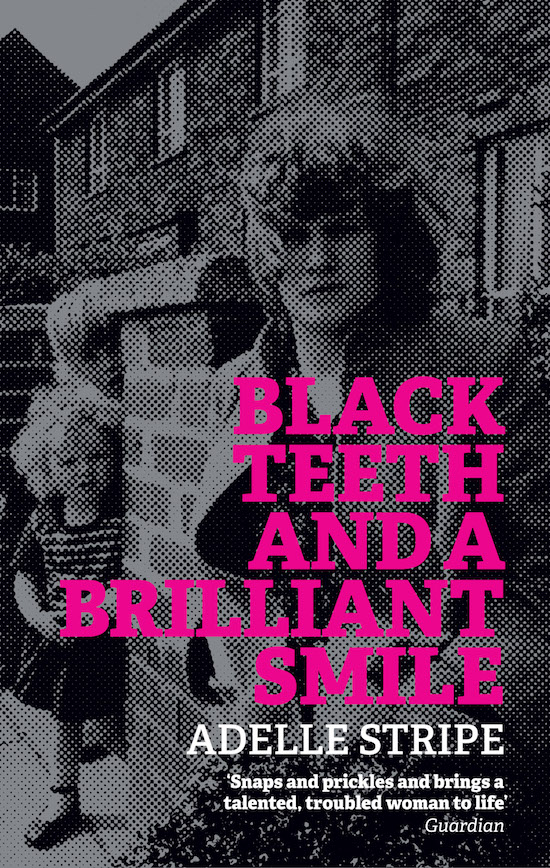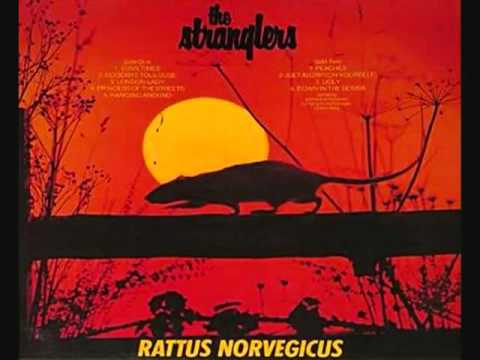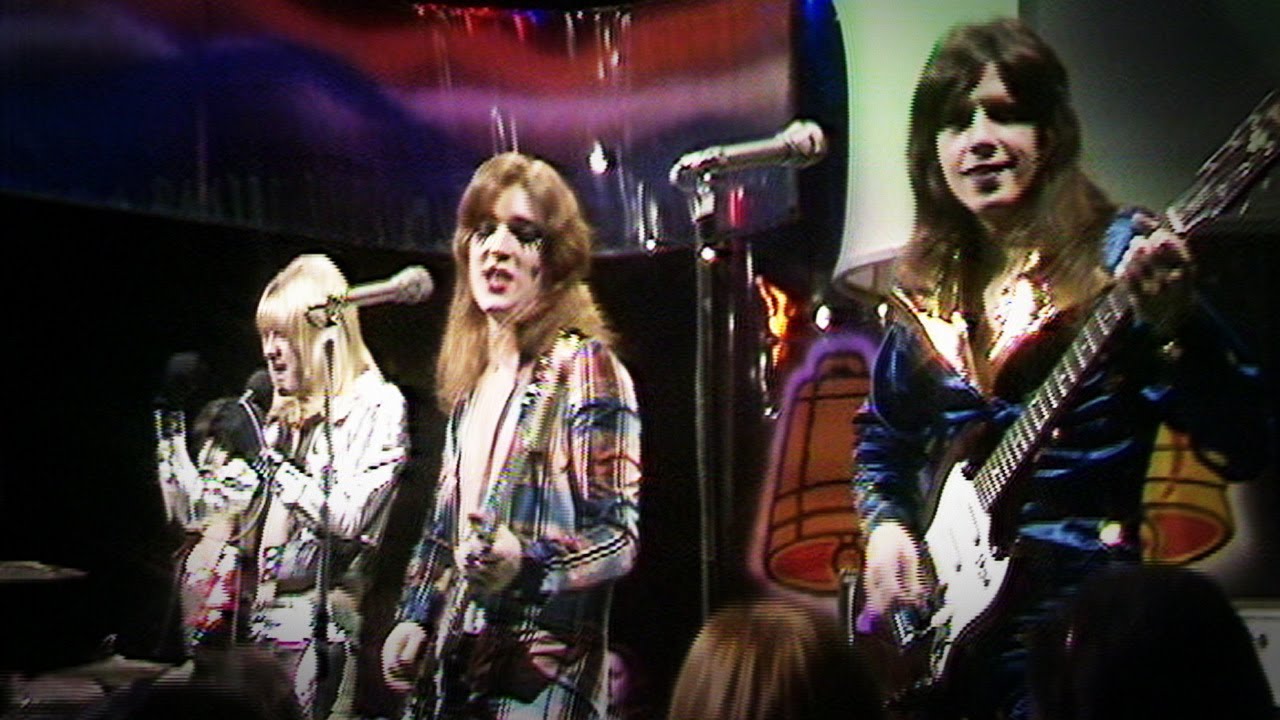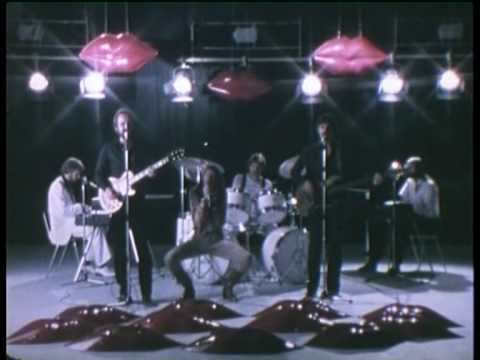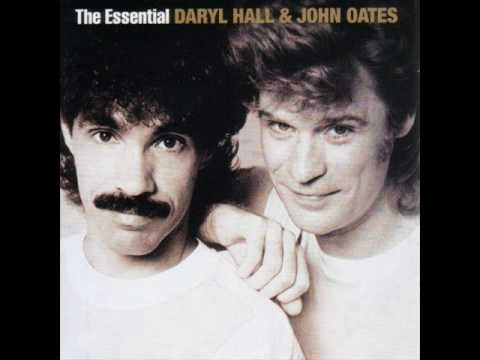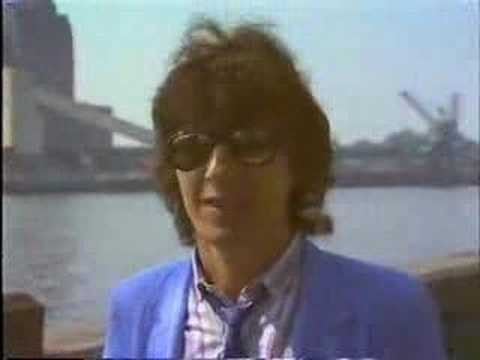Inspired by the life and work of Bradford playwright Andrea Dunbar, Black Teeth And A Brilliant Smile maps the extraordinary rise of a young woman from the Buttershaw estate, who is discovered via a Women’s Aid refuge. She is propelled into the London theatre establishment and an adapted screenplay of two of her early plays in 1987 (Rita, Sue And Bob Too) brings her wealth, accolades and notoriety. Aged 29, she collapses in her local pub, from a fatal brain haemorrhage. A bittersweet tale of the north-south divide, it reveals how a shy teenage girl defied the circumstances into which she was born and went on to become one of her generation’s greatest dramatists.
The novel, (or perhaps a non-fiction novel, if we really pick at the seams), took four years to write and research. Some of it came from archives – old press cuttings locked away in dusty cupboards, or hidden microfiche in the vaults of Bradford Library. I spent weeks wandering the streets of Keighley (where she wrote Rita, Sue And Bob Too) and Bradford, attempting to create a portrait that captured her black wit, resilience, intelligence and spirit. In many ways she was a whistle-blower, reporting from the frontline in a voice that had not been censored. Her difficult truths remain, yet she was a truth-sayer, one who saw through the bullshit of London, and all of those who tried to exploit her.
2017 has been a big year for Andrea Dunbar, the BFI have released a blu-ray edition of Rita, Sue And Bob Too, the play has been revived by Out of Joint (directed by Kate Wasserberg) and is touring across the UK to rapturous audiences, and her final play Shirley is being staged in Halifax. There finally appears to be some public recognition for her work, thirty years on.
I first stumbled across Andrea’s writing via an old black & white television which I luckily had in the bedroom as a youngster. After my parents had gone to bed, I used to put my headphones in and switch the dial to Channel 4. Don’t think they would have approved of the late-night films I watched, it was a portal into another dimension. That’s where I first saw Alan Clarke’s film, and probably where I watched a YTV documentary on her in 1989, called In Praise Of Bad Girls. I was too young for anything cool like Acid House, and lived in a deadbeat town, so television, books and records were my main route out.
Gordon Burn’s Somebody’s Husband, Somebody’s Son, Pat Barker’s Union Street, and Keith Waterhouse’sBilly Liar were all literary influences, but music also played a huge part in the writing of Black Teeth And A Brilliant Smile. This isn’t a fashionable playlist, it’s the sort of music you’d hear on a jukebox, in some rough boozer on the edge of town. Some have been chosen as they are included in the book, others are evocative of my own memories of growing up in Yorkshire at that time. It is the sound of local radio stations, halftime tannoy music on lower league football terraces, the music of smoky transport cafes and the tinny wireless rattling in your neighbour’s backyard.
The Stranglers – ‘Peaches’
In 1977 Andrea was working on the French Comb at Bowling Mills, a vast site that sprawled along Manchester Road. She left school (with one CSE) and followed in her parents’ footsteps by working in the worsted trade. This was before the winter of discontent kicked in, and school leavers could still earn £46 a week working shifts. I spent an afternoon in the Bridge Tavern, a pub which faced the demolished mill site. Andrea would have most certainly supped a few pints in there and probably listened to The Stranglers. It has a biker contingent, and the walls are decorated with pictures of every boozer in Bradford and boxers from back in the day. The landlord pulled out his old photo albums and showed me pictures of the mill just before the wrecking balls hit. He knew the Dunbars and used to play darts with Andrea’s dad, John Brian, in the Beacon.
Nazareth – ‘Silver Dollar Forger’
Buttershaw in the 1970s was a wild place. Motorbikes were popular, and if you watch Rita, Sue And Bob Too you can see Rita’s brothers tinkering with their oily machines in the front gardens. Nazareth had a big following in the Yorkshire hard rock scene, and of course, Bradford had its own club, Rio’s, in Great Horton, that hosted a raft of metal nights. It was demolished, so stands as another part of the city’s history now. A reader contacted me to say how she hung out with biker gangs on Buttershaw back then, and used to go drinking with Andrea. They were so poor that they asked for fish scraps from the chippy ‘to feed to the cat’, when in fact, it was for their own dinner.
David Essex – ‘Streetfight’
David was a heartthrob, eyes that you could fall into. All of my female relatives were in love with him. He’s immortalised in the book as a poster on Andrea’s teenage bedroom wall. But there’s another connection that isn’t really known – after Andrea died in 1990, Bradford Council set up a space for writers in the library, called ‘The Write Place’ in her memory. They also created a hardback book of some of her press cuttings which was presented to her children. David Essex was there for the official opening, cut the ribbon, and spent time with her kids. Sadly it isn’t there anymore, and was shut down as part of the refurbishment. We are currently campaigning for a permanent memorial to Andrea in Bradford city centre.
Sweet – ‘Blockbuster’
The Dunbars moved up to Buttershaw in the early seventies, before that they lived in a flat on Sloan Square in Manningham, which is ironic as Andrea ended up at the Royal Court, on Sloane Square ten years later. This is a teenage disco classic that sounds fresh as a glitter-dusted daisy. Guaranteed smash hit for New Year’s Eve at midnight and of course, exactly the sort of record that would have been played at the youth club, another place where Andrea hung out on a night.
Exile – ‘Kiss You All Over’
This record makes a cameo in the book, as the music that Andrea’s neighbour plays when she lives at Littondale House, on the Braithwaite estate in Keighley. It also appears in Andrea’s first play, The Arbor, as a song that a character sings to ‘The Girl’. I became obsessed with it and have a battered vinyl copy. It will always remind me of writing this novel. It’s cringeworthy as it’s a bit yacht rock / AOR and the singer looks like an old lush you’d see doing a karaoke in the Boy & Barrel. But it brings a tear to my eye.
Hall & Oates – ‘Maneater’
‘Maneater’ reminds me of the music my mum used to play in her Ford Cortina, in the early eighties. She used to take me on long drives, to buy ice cream, or chips in Bridlington. Mum was a competition hairdresser, so the car was often full of Elnett hairspray, diamante pins and foam heads. We’d listen to Hall & Oates at full blast with the windows down singing, ‘Oh here she comes!’. I must have been six years old. There’s quite a lot of her in the book. She died when I was writing it. Andrea became an escape from the grief of it all, my imaginary friend in the darkest hours.
Bill Wyman – ‘Je Suis Un Rockstar’
Like Rita, Sue And Bob Too, this is a relic from the sleazy eighties that would NEVER get made in 2017. I mean, just look at Bill Wyman here, washed up and perving. Awful Franglais set to a tropical beat, ‘we could go on an’ hovercraft, across the water, they’ll think I’m your Dad, and you’re my daughter…’ Sadly, it’s a guilty pleasure, like many records on this playlist. It’s wrong on so many levels, I can’t help but laugh every time I hear it. It’s the sound of Benidorm, pineapple daiquiris, and dancing around handbags. It’s also the best record the Stones never made.
Eddy Grant – ‘Walking on Sunshine’
This record was playing on the office turntable when I found out that Fleet wanted to sign Black Teeth And A Brilliant Smile. I had no idea that anyone beyond myself would be interested in reading the book, had little confidence in my ability, and have spent ten years writing poetry chapbooks for nish. I have come to understand that maybe being northern, working class, and a bit reckless, is no bad thing. So ‘Walking On Sunshine’ will always represent that moment of emerging from the grubby undergrowth.
Hot Chocolate – ‘You Sexy Thing’
This track is most famously associated with The Full Monty but was originally Alan Clarke’s first choice for the infamous car scene in Rita, Sue And Bob Too where Bob plays a cassette tape and drives Rita and Sue up onto Baildon Moor. Michael Kamen’s ‘Silly Song’ was used instead as Hot Chocolate wouldn’t licence it.
Fine Young Cannibals – ‘Johnny Come Home’
Andrea wasn’t really a big music fan, but according to her daughter, Lisa, she loved Fine Young Cannibals and always played them in the Beacon. She collapsed in there on Dec 19th, 1990, after complaining of severe headaches, and never regained consciousness. It was an important place to her, the source of her inspiration and she spent her days in the tap room drinking, smoking, laughing and picking up ideas for her plays. It was also a tough estate pub, and she felt safe there. It was her second home.
Black Lace – ‘Gang Bang’
I couldn’t create a playlist and not include Black Lace, perhaps the worst band Yorkshire has ever produced, but also one of the most successful. I have a great deal of affection for them. This song is on the Rita OST, and was written by vocalist Alan Barton, who left Black Lace to join the second worst band in Yorkshire, Smokie, and tragically died in a tour bus crash. Dene Michael (the keyboard player) is known as ‘Mr Agadoo’ and still tours. He was found guilty of benefit fraud and sent to Armley Jail (the Hotel on the Hill) where inmates forced him to ‘Do The Conga’ around the exercise yard every day, and made him sing ‘Agadoo’ to the wing before bed. He was terrified.
Black Teeth and a Brilliant Smile is published by Fleet and is now available in all quality bookshops. It can be ordered online via Blackwell’s

